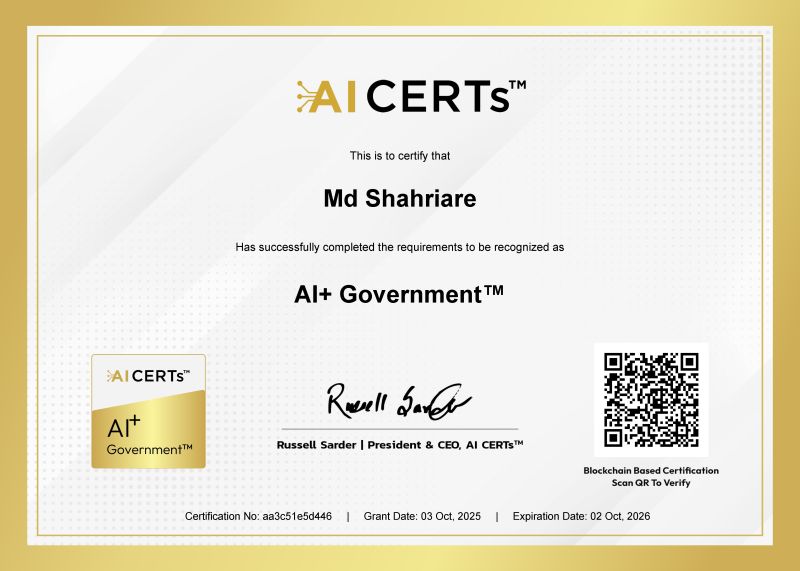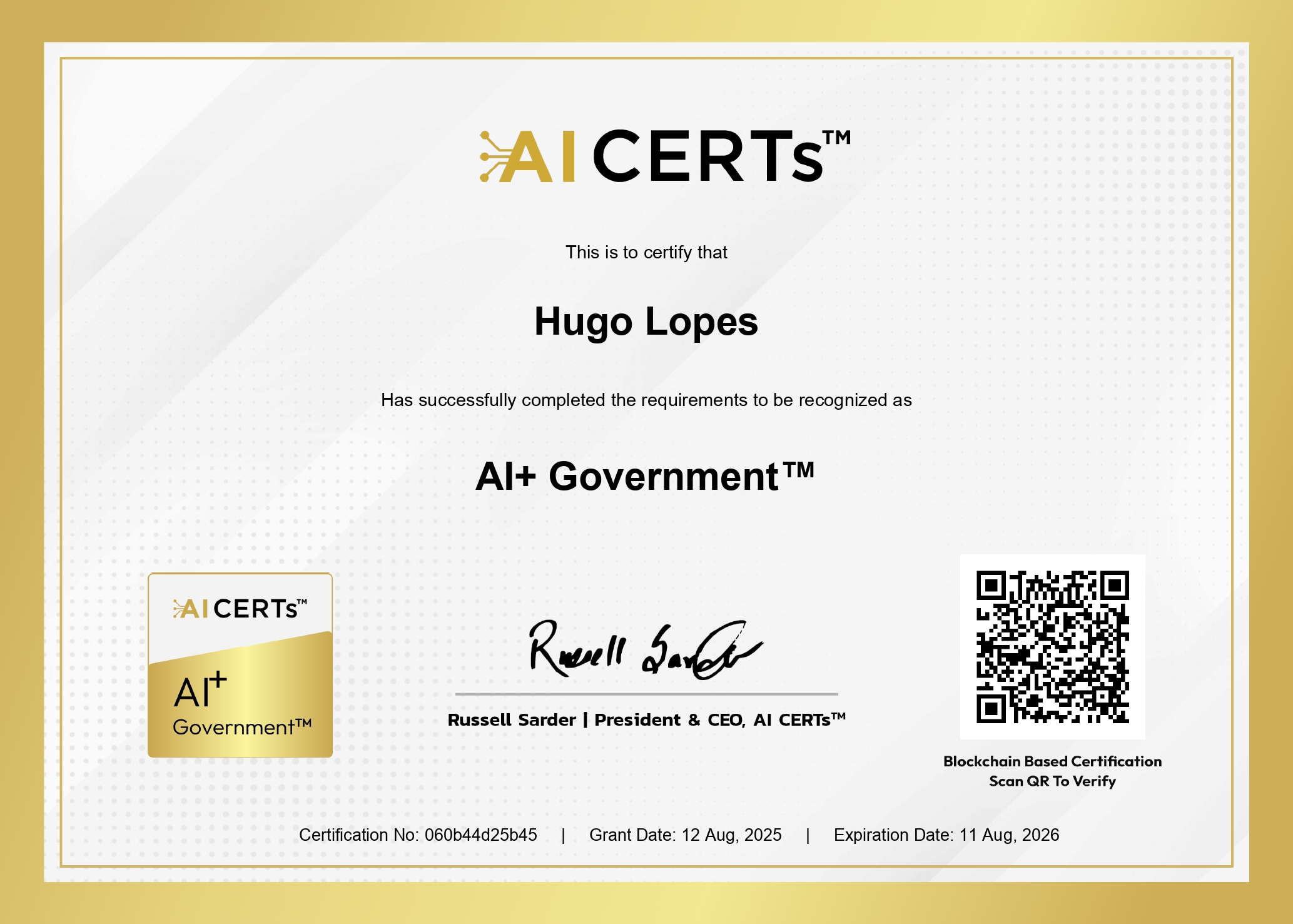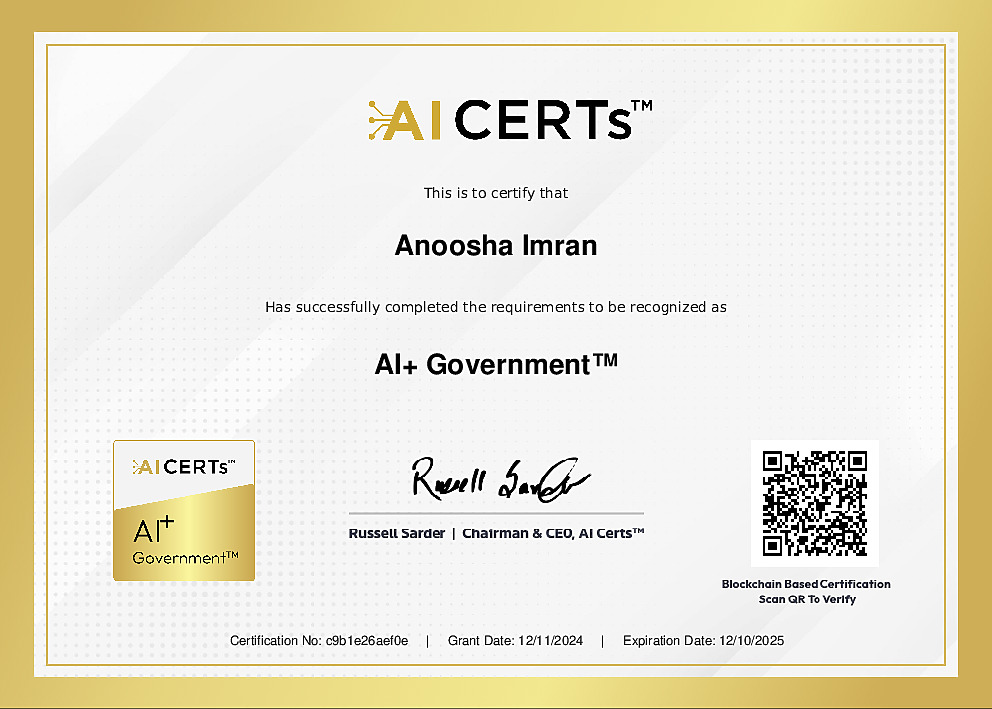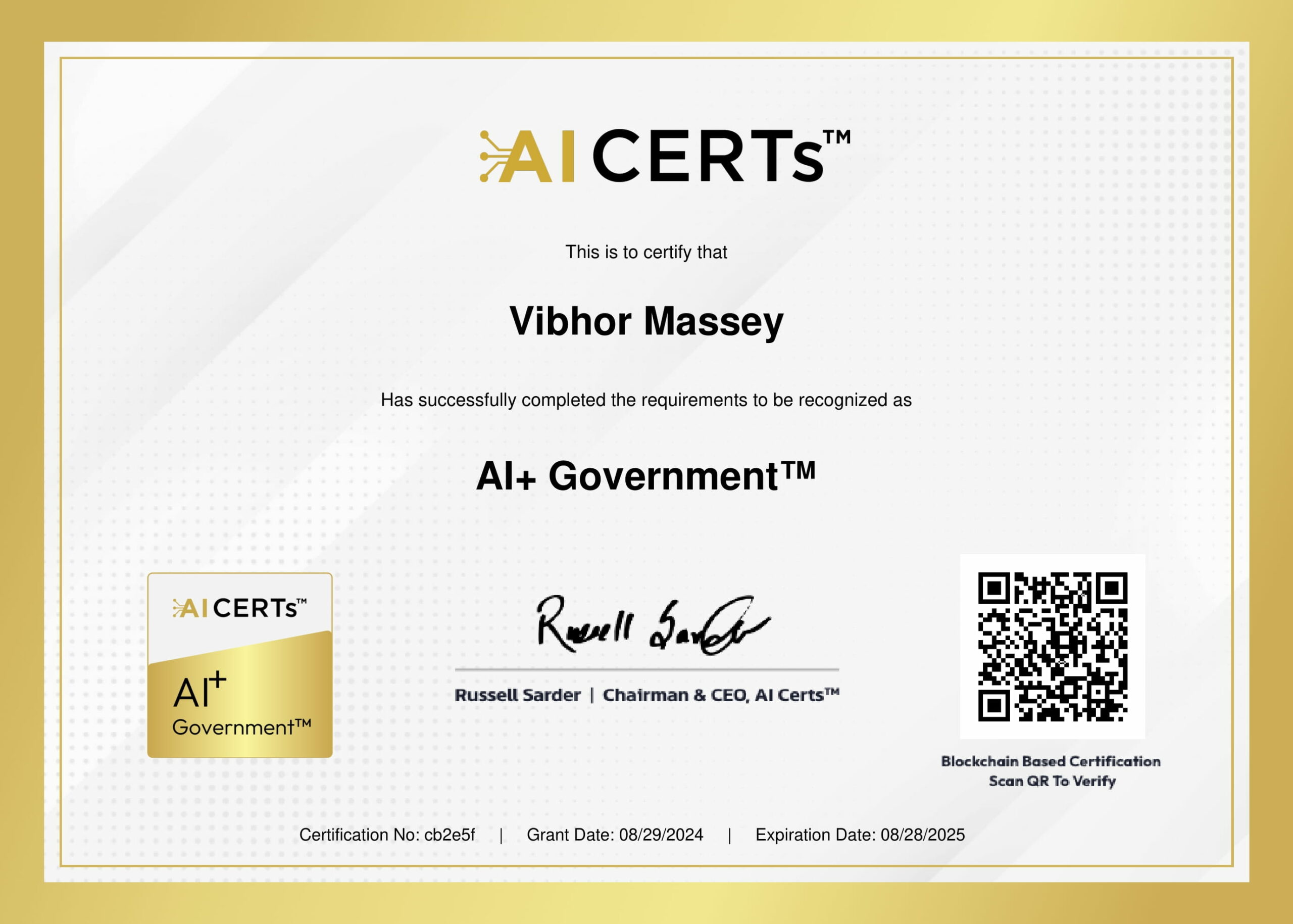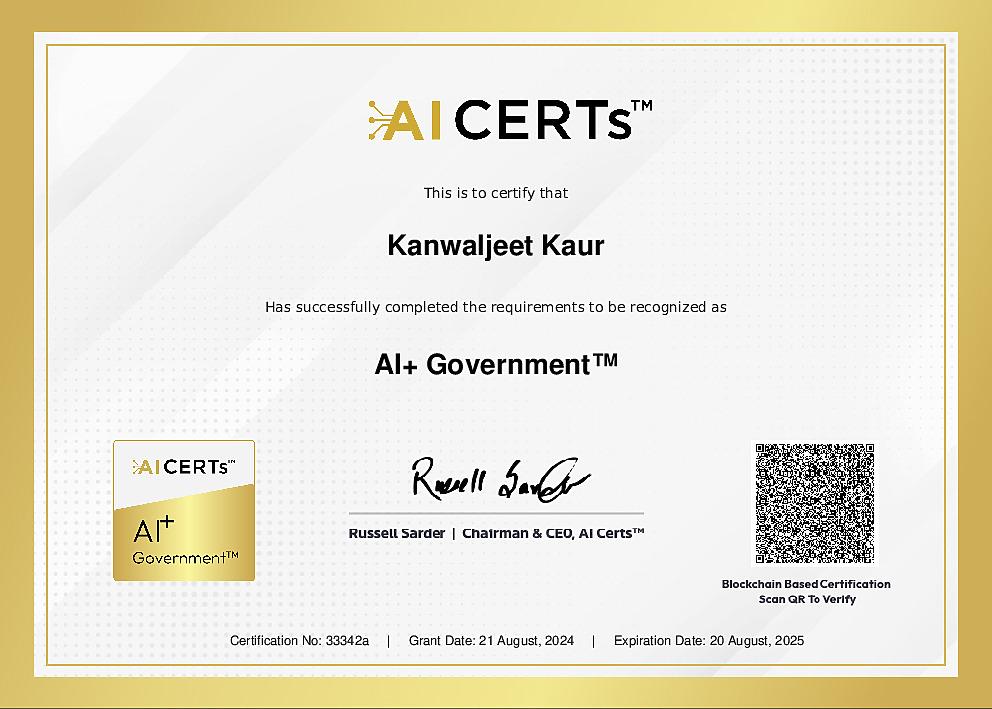Home » All Certifications » Specialization » AI+ Government™
$7,999.00
| Modules | Percentage |
|---|---|
| Introduction to Artificial Intelligence (AI) in Government | 10 |
| AI Governance and Policy Frameworks | 15 |
| AI-Driven Data Management and Governance | 10 |
| AI in Education and Skills Development | 15 |
| AI for Public Safety and Security | 15 |
| AI for Citizen Services | 10 |
| AI Implementation and Integration in Government | 15 |
| AI Strategies, Future Trends and Emerging Technologies | 10 |




Showcase your expertise to potential employers and professional connections.
Your certificate is secured on the blockchain for tamper-proof authenticity and can be downloaded as a high-quality PDF for personal records or professional sharing.
Celebrate your accomplishment with your network on all social platforms.




Spearhead AI implementation projects within government agencies, ensuring alignment with strategic goals.
Translate AI policies into actionable frameworks and oversee their execution in government processes.
Advise public bodies on AI adoption strategies to optimize workflows and improve service delivery.
Develop cutting-edge AI applications to streamline operations, enhance transparency, and tackle pressing societal challenges.

